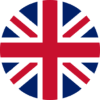Projects
FUTURE CHALLENGES IN ANIMAL PRODUCTION SYSTEMS: SEEKING SOLUTIONS THROUGH FOCUSED FACILITATION
Topic: Bovine Tuberculosis (bTB)
Summary
<div class="container" style="width:300px;">
<!–
<div class="leftcol">
<B>Forestry Component:</B> #forestry_component%
</div>
–>
<div class="leftcol" style="width:194px">
<b>Animal Health Component</b>
</div>
<div class="rightcol" style="width:56px; text-align:right">50%</div>
<div class="endrow" style="float:none; display:block;"></div>
<!–
<div class="leftcol">
<B>Is this an Integrated Activity?</B> #integrated_activity
</div>
<div class="rightcol"></div>
<div class="endrow"></div>
–>
<div class="leftcol">
<b>Research Effort Categories</b><br>
<div class="container" style="width: 375px;">
<div class="rec_leftcol">Basic</div>
<div class="rec_rightcol">20%</div>
<div class="endrow"></div>
<div class="rec_leftcol">Applied</div>
<div class="rec_rightcol">50%</div>
<div class="endrow"></div>
<div class="rec_leftcol">Developmental</div>
<div class="rec_rightcol">30%</div>
<div class="endrow"></div>
</div>
</div>
<div class="endrow"></div>
</div>
Objectives & Deliverables
<b>Project Methods</b><br> For Iowa, the approach to this next generation project (S1074) builds on successful approaches the terminating project (S1032) employed previously, with a drive to focus work around dynamic core issues. Individual team members will have variable levels of commitment to each of the core Issue Teams, and the specific objectives therein. We propose specific tasks that generate metrics for the objectives.Objective 1In Iowa, we will participate in adaptive networks in space and time by leveraging Iowa-based resources to contribute to issue-centered teams, and engage network participants through face-to-face and online work sessions.Task 1A. Participate in web-based work sessions, use multiple platforms providing the necessary functions of document sharing, large and small group conversations, and recording. Participation in virtual work sessions allows us to reduce the time and cost commitment for access to Issue Teams, expanding our transdisciplinary breadth and stakeholder involvement. Remote teaming will include opportunities for learning from Issue Team updates and an opportunity for introducing new concepts, analytical methods, and processes developed in Iowa. Web-based sessions will also include dedicated work time toward project objectives. Iowa project members will draw from numerous experiences and collaborations.Task 1B. Participate in face-to-face workshops that translate techniques and methods among Issue Teams and S1074 membersThe Iowa S1074 members look forward to annual meetings hosted by various members to actively engage, face-to-face, with colleagues from across the nation. This engagement is amplified when working collectively to learn or develop ideas. Annual meetings will continue to serve three purposes: (1) conduct annual meeting business; (2) conceptualize and/or refine the causal loop diagram for the core issues to be tackled; and (3) learn new techniques or methods (including Extension and outreach) that is transferable among all Issue Teams and S1074 members.Task 1C. Strengthen the next generation of thinkers to engage in animal protein sustainability discussions relevant to Iowa. Iowa project members support and mentor undergraduate and graduate research and Extension assistants at ISU on projects that serve this project's objectives. In addition, Iowa project member (Koziel) serves supportive role in the NSF-funded INFEWS project for engaging graduate students from different disciplines and institutions in cohort projects requiring transdisciplinary approaches to case studies for modeling and evaluating animal systems for their food, energy, and water implications (INFEWs-ER). Iowa project members will be individually responsible for engaging graduate students and participation in S1074 work.Objective 2We will synthesize data, analytical tools and communication mechanisms to evaluate animal system dynamics related to the core issues on various spatial and temporal scales by aligning CLD system nodes and metrics with sustainability metrics, sharing data in the open access arena, and moving from causality to mechanistic relationships.Task 2A. Align sustainability definitions and metricsIowa S1074 members will participate in collatingng and prioritizing the definitions and metrics used to evaluate sustainable systems according to parties within the animal protein supply chain.Task 2B. Iowa members will have an opportunity to contribute to the development of data dictionaries appropriate for sharing data in the open access arena, Data dictionaries, establish standard names, definitions, attributes, allowable values and potentially measurement methods (techniques, sensitivities, limitations).Task 2C. Move from Causality to MechanisticIowa members will have an opportunity to identify and engage underrepresented disciplines; identify and engage new analytic and synthetic expertise to improve vitality of the committee by sharing Iowa experience.Objective 3Using the adaptive networks formed through Objective 1, and the synthesis of data and tools in Objective 2, we can drive research directions to address gaps in knowledge of our existing systems, and potential solutions to respond to potential external perturbations in future animal production systems.Task 3A. Propose SolutionsIn Iowa, we anticipate testing and developing solutions for current and forecasted systems. These could involve solutions for environmental challenges on the nexus of food, energy and environment (e.g., mitigation of livestock odor, manure management). These projects will be tangential but supportive of the overall project goal, especially with respect to transdisciplinary projects and graduate/undergraduate student training as part of those projects.

